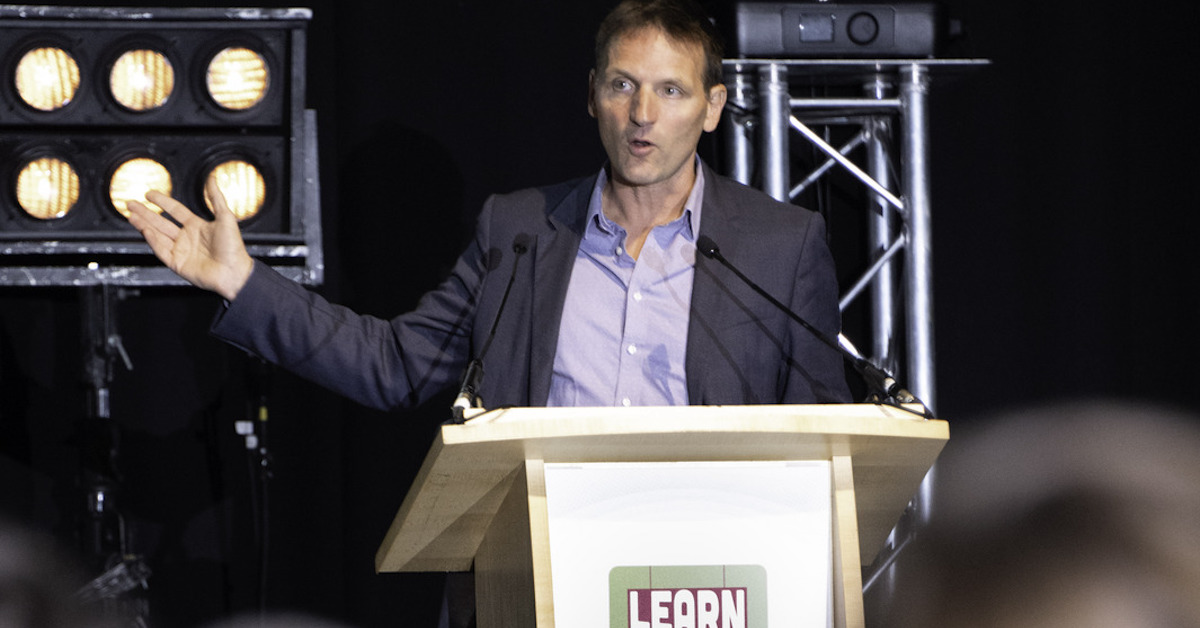The 6 best business books of the year examine Silicon Valley, Chinese tech giants and even murder
The Financial Times revealed the publication's shortlist for its 2022 Business Book of the Year Award. The winner will be announced December 5.

If you're looking for your next absorbing and informative business-centric read, then the Financial Times has you covered with the newly unveiled shortlist for the publication's 2022 Business Book of the Year Award.
Last year's winner was "This Is How They Tell Me the World Ends," New York Times reporter Nicole Perlroth's jarring exploration of cyberattacks and the sophisticated hackers who use them to wreak havoc on individuals, businesses and governments.
On Thursday, the Financial Times announced six finalists for this year's award, all of them published between Nov. 16, 2021 and Nov. 15 of this year. The finalists for this year's award cover a range of topics, including the fascinating rise of China's sprawling internet giant, Tencent, as well as the fight to control the global semiconductor chip market and an investigation into fraud — and even murder — in a major shipping industry scandal.
The winner will be announced on Dec. 5 at a ceremony in London and that author will receive a cash prize of roughly $32,700. Runners-up will receive prizes of nearly $11,000 each.
In the meantime, you can judge for yourself. Here are the Financial Times' six finalists for this year's Business Book of the Year Award:
'Dead in the Water: Murder and Fraud in the World's Most Secretive Industry'
In "Dead in the Water," Bloomberg reporters Matthew Campbell and Kit Chellel explore the scandalous saga surrounding the faked 2011 hijacking of the oil tanker Brillante Virtuoso and the subsequent murder of a British maritime surveyor who had been tasked with investigating the incident.
The Financial Times review calls the book "in part a well-written, well-paced thriller. But it is also a morality tale."
'Influence Empire: The Story of Tencent and China's Tech Ambition'
Since launching in 1998, Tencent has become one of the largest companies in China — and the world — thanks to a suite of valuable tech and entertainment holdings that started with instant messaging software and now also includes one of the world's largest video game publishing companies, Tencent Games.
In "Influence Empire," Bloomberg tech reporter Lulu Chen uses insider interviews to track Tencent's rise to become a nearly $360 billion company.
'The Rise and Fall of the Neoliberal Order: America and the World in the Free Market Era'
University of Cambridge historian Gary Gerstle puts neoliberalism under the microscope in his new book. Gerstle explores how an increased focus on free trade and free market capitalism in the U.S. over four decades ago helped shape the American political landscape of the late-20th century, while arguing that the facade of neoliberalism has been crumbling in recent years with the rise of populist movements, like that of former President Donald Trump.
'The Power Law: Venture Capital and the Art of Disruption'
Sebastian Mallaby, a columnist for The Washington Post, previously won the Financial Times' Business Book of the Year Award in 2016 for his biography of economist Alan Greenspan. His latest book, "The Power Law," looks at the role venture capitalists have played in shaping Silicon Valley and the tech industry overall.
In speaking with venture capitalists who backed some of the world's most successful tech companies — from Google to Alibaba — Mallaby examines the decision-making processes of VCs and how much their success can depend on "gut instinct and personality rather than spreadsheets and data."
'Chip War: The Fight for the World's Most Critical Technology'
Supply chain issues that contributed to the ongoing global semiconductor chip shortage have made it painfully clear how ubiquitous and important those tiny electrical circuits are in our modern world.
In "Chip War," historian Chris Miller delves into the history of semiconductor chip design and how modern countries continue to spend billions of dollars as they battle it out for supremacy in the market for designing and building the chips that are used in everything from computers and smartphones to cars and household appliances.
'Disorder: Hard Times in the 21st Century'
"Disorder" examines the current geopolitical and economic landscape through the lens of changing energy consumption and the global shift toward green technology. In "Disorder," Helen Thompson, a professor of political economy at the University of Cambridge, explores the role the transition away from a dependence on fossil fuels has played in various political and economic disruptions of the past decade, including ongoing instability in the Middle East, populist movements in the U.S. and abroad, and even Russia's war in Ukraine.
Sign up now: Get smarter about your money and career with our weekly newsletter
Don't miss:
Bill Gates' advice to his younger self is simple: 'Read a lot'
Bill Gates: 'On vacation I get to read about 3 hours a day' — this strategy is 'key to my learning'

 Koichiko
Koichiko 


























![Run An Ecommerce SEO Audit in 4 Stages [+ Free Workbook]](https://api.backlinko.com/app/uploads/2025/06/ecommerce-seo-audit-featured-image.png)



